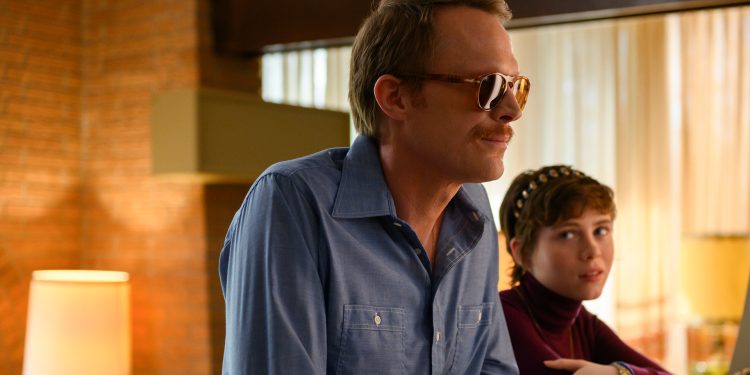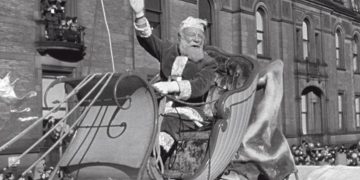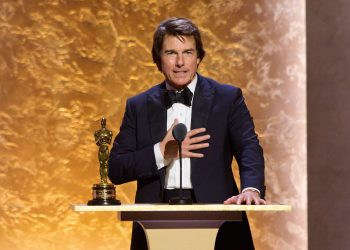Thirteen years after writing and directing his first feature Towelhead, Alan Ball is back with the deeply affecting new film Uncle Frank.
Ball is best known for penning the Oscar-winning Best Picture of 1999 American Beauty, directed by Sam Mendes, for which he received the Academy Award for Best Original Screenplay (among many other accolades). Ball went on to create two seminal HBO series, Six Feet Under and True Blood, breaking ground for LGBTQ-character representation and pushing the boundaries of satiric storytelling.
Ball began his career as a playwright. His off-off Broadway play, Five Women Wearing the Same Dress, led to TV sitcom offers which led to American Beauty.
He is back at the indie helm with the highly personal Uncle Frank, a work that explores deep-seeded homophobia in the American South as well as probes the PTSD that comes from unresolved past issues. Set in the early ‘70s, Frank (a superb Paul Bettany) plays a gay NYU professor forced to keep his sexual orientation a secret from his South Carolina family. When a tragedy strikes, he and his beloved niece, Beth (Sophia Lillis), return to the small town, and Frank is forced to confront past demons. Joining them on this literal road trip is Frank’s loyal sig other, Wally (Peter Macdissi, Ball’s partner), who is shoved into the shadows. Ball pulls no punches in depicting a very volatile and angry titular character who has been severely damaged by his homophobic father.
The film boasts a solid ensemble including Steve Zahn, Judy Greer, a scene-stealing Colton Ryan and the amazing Margo Martindale as Frank’s tough-ass mother.
Awards Daily had a chat with Ball about Uncle Frank as well as his career.
Awards Daily: Can you tell me about the genesis of the screenplay and the autobiographical elements that shaped it?
Alan Ball: Yes, it’s not autobiographical per se. A number of years ago, I was living in New York City and I went home to my hometown of Marietta, Georgia, to come out of the closet to my mother. And she surprised me by saying, ‘Well, I blame your father for this because I think he was that way, too.’ Now, I don’t know if that’s true. I’ll never know if that’s true because my dad was already dead by that point. But the next day we were driving around North Georgia, and we drove past a lake and she said very nonchalantly, ‘That’s where Sam Lassiter drowned.’ And I said, ‘Who’s Sam Lassiter?’ And she said, ‘He was a real, real, real good friend of your dad’s.’ And so a door just opened in my consciousness… What if that were true? What could that story have been? What might have taken place? And it percolated in my head for 25 or so years and about four or five years ago, I sat down to write a script and Uncle Frank is what came out.
AD: Have you pursued that any further, Alan, trying to find out about your dad?
AB: I haven’t because my mom made it clear she didn’t want to talk about it anymore. And she’s no longer with us so all I have is the possibility. When I was growing up, I felt like he had some kind of secret tragedy that he was carrying. I always felt that. So that figured in, too, when I was writing the script. What might have been.
AD: It’s been a while since your feature debut as writer/director with Towelhead. Was there a reason you felt now was the time to return to feature filmmaking?
AB: Well, one of the reasons I didn’t try to pursue any feature work between then and now was because I was busy with True Blood. I spent five seasons doing True Blood. I spent a couple of years developing and shooting a pilot for HBO that didn’t go. I did a series for HBO that only lasted for one season (Here and Now), so it wasn’t like I had all this time. People say, why Uncle Frank, now? And, honestly, the reason is that Miramax said they’d finance it. I have a bunch of scripts that I would love to get made, but until somebody wants to actually finance them and make them happen they’re just going to sit here on my shelf…I don’t really decide what I’m going to do next. The studios and the networks decide. I don’t really do a lot of development. I tend to write things on spec. So I end up with a bunch of scripts that I’m trying to get set up and they’ve all been passed on many times. Uncle Frank got passed on many times before Miramax said yes. It’s just part of the business.
AD: True Blood is a prime example of how significant you’re work has been in moving queer stories forward. Can you speak to the groundbreaking work of Six Feet Under and True Blood and whether you encountered resistance?
AB: I actually did not encounter a lot of resistance with the gay characters in Six Feet Under and True Blood. I did a sitcom prior to Six Feet Under that only lasted one season at ABC (Oh, Grow Up!) and it was about three guys who share a brownstone and one of them was gay. I guess being a gay man, I like for there to be characters who are gay in the fictional world. I don’t want it to be all gay, but it just makes sense. They say write what you know, so… [Laughs]
AD: In Uncle Frank, Frank gives Beth some great advice: ‘Are you going to be the person you decide to be or the person everyone else tells you, you are?’ Did you have someone give you that advice?
AB: I wish I had. I really could have used an Uncle Frank, but I did not have one. [Laughs] I think it is really good advice. I don’t know where it came from, but I wish I had had an Uncle Frank. It would have made things a lot easier.
AD: When did you think of Paul Bethany for the lead? Is he someone you always had in mind?
AB: I didn’t really have anybody in mind when I wrote the script. Once the script was done we were trying to get an actor attached who’d be meaningful to financiers…I’ve always been a fan of Paul’s, and I watched a movie called Journey’s End where he plays a World War I British soldier. It’s the story about a bunch of soldiers in a bunker and they all know they’re going to die. He created a character that was so decent and had such dignity and kindness and inherent goodness and bravery. That’s what I always saw in Frank, so I sent the script to his agent and he read it and he called me and we had a lovely conversation, probably lasted about two hours. And there were things about the script that really spoke to him, personally. And I could just tell that—I mean it’s always a gamble, but I felt like this guy’s the right guy.
AD: The entire ensemble is great, but in particular Margo Martindale. She brings such gravitas to the role of the matriarch.
AB: She really does. She’s so amazing. Once we had cast Sophia and Peter and Paul, I basically just made up a wish list of who I wanted to play the rest of the family and I just contacted their agents and sent them scripts and every single person said yes. I felt so blessed that these people wanted to be a part of this.
AD: One of the things I found striking is that although the film is set in the early 1970s, coming out now in small towns in our country can still be difficult, depending on the area and the family, so I think the movie speaks to today.
AB: Yeah, I think the movie’s pretty universal. I guess one of the reasons I [set] it in the ‘70s is because it’s partially a coming-of-age story for Beth and I was 16 years old in 1973 so it just felt organic for me for it to be taking place in that time period. But you’re right, there’s still so many kids who get thrown out of the house by their parents. Still so many LGBTQ kids that are contemplating suicide. It’s unfortunate, but it’s still relevant today.
AD: I appreciate how Uncle Frank speaks directly to confronting past trauma. As a writer you get to explore that in your work. Is the writing process cathartic for you?
AB: It absolutely is. I went through a traumatic experience when I was 13 years old. My sister, who was the person I loved most in the world, was driving me to a piano lesson and there was a car accident and she died. And that’s something I’ve been carrying with me for the rest of my life, and I will until the day I die. I’ve certainly talked about it with lots of therapists. I’ve shared it with friends and family, but there’s something about being able to express it through my work that I do believe is very cathartic and very healing. It’s not like, okay, I wrote this movie so now it’s over, I don’t have to worry about that anymore…Trauma doesn’t work that way, unfortunately. But I do feel like my work has been really helpful to me in terms of dealing with the post-traumatic stress and the grief that accompanies having had something like that happen to oneself early in life. If I didn’t have my work, I don’t know what I’d do in that regard.
AD: As I writer myself, I concur with that. It helps. We don’t get over it, necessarily but it helps to make it a part of who we are.
AB: Yeah, you sort of integrate into your being. The worst thing you can do is try to bury it, try to run away from it because that really doesn’t work. Part of my life’s journey is learning to be with it and have it be a part of me and to not feel like I have to escape it.
AD: A little over 20 years ago you won the Oscar for American Beauty. Looking back at that experience and winning the Oscar, what are your thoughts today?
AB: That was a very surreal out of body experience. [Laughs] I felt like, what am I even doing here? It was great, it was exciting, it was tremendous for my career. I’m so happy that the movie spoke to as many people as it did, but it was not easy. That was not an easy night for me. I’m not comfortable being the focus of that much attention. I had a flask of whiskey in my tuxedo pocket…And I don’t remember walking up to the stage. I just remember, once I got up there, I looked out and all I saw was this big monitor in the back of the auditorium that started flashing, 15, 14, 13…counting down the amount of time I had to speak. It was surreal. It was completely surreal. I would like to say that I enjoyed it, but it would be more of an accurate description to say I survived it. (laughs)
AD: And in the days that followed, did you find yourself being the belle of the ball?
AB: I found, when I would go to meetings when they were considering me for projects and I would tell them what my ideas were, everybody acted like I knew what I was talking about whereas prior to that, nobody ever listened to anything I had to say. It, sort of, legitimized me in the eyes of powerful people in Hollywood. For a while. That didn’t last. But I did notice that all of a sudden people were like, that guy knows what he’s doing. And it’s only because I won a statue…Also, the movie was profitable. It made money, so that’s probably what they paid attention more to, than the statue.
AD: I know you’ve written many scripts. Is there a dream project you’ve written and, if you don’t believe in jinxes, can you tell us a bit about it?
AB: I have four scripts that I’ve written that various people have read and everybody has passed on. And I’d be happy for any of them to (get made). I have a little bit of a superstition; I don’t like to talk about things before they actually happen…But I would definitely love to do more movies. I’m at a point in my life where I’d much rather spend five weeks filming something than eight months, which is what you end up doing when you do a series. I’m keeping my fingers crossed. I’m hoping maybe if Uncle Frank is well-received maybe people would be willing to take another look at these other screenplays that have. We’ll see, though. It’s all out of my hands.
Uncle Frank is in theaters and on Prime Video November 25th.













